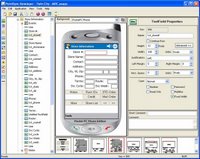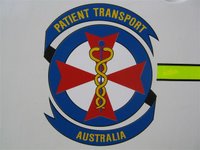
RADs-ME - rapid application development for mobile environments. That is the definition of MobileDataforce's PointSync software. MobileDataforce has just set up an Australian based support, development and sales center in our North Sydney office.
We have been supporting our ANZ customers from Europe and North America for the past few years, but we recognized that that was less than ideal. Now our support and services teams are available for onsite visits, trainings and support throughout ANZ.
PointSync enables our customers to build their own mobile applications without programming or coding, or have their favorite IT consultant develop it. They can configure their applications, the user interface, business logic and the integration with back office databases from within PointSync. This flexibility and ease of use has made PointSync popular around the world.
PointSync allows companies to rapidly develop and deploy customized/bespoke mobile applications specific to their unique business processes at an affordable price.
Our MobileDataforce Australia team is now available to help you understand how to mobilize your unique business processes. Please feel free to contact us to explore your mobility needs!
Australian Sales








